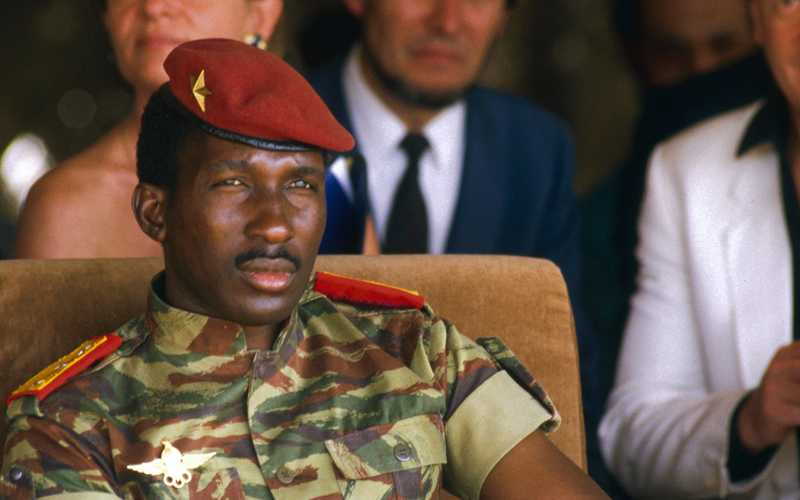Wednesday the 15th of October marks 38 years since the assassination of president Thomas Sankara of Burkina Faso.
Thomas Sankara was the president of Burkina Faso from 1983-1987, when he assassinated the forces of the west. He came to power through a military coup of what was at the time a French colony called ‘Upper Volta’. Sankara was one of the most important leaders in the history of our movement – we remember him today and some of his greatest achievements while assessing the current conditions of Burkina Faso in 2025, since they have recently had some revolutionary rejuvenation in their current leader, Ibrahim Traore, who has upheld and continued the Sankara legacy.
Sankara’s rise to power was a messy one that involved organising the military of Upper Volta to overthrow their French colonial leadership. The dissidents of the army had an organised body called “Conseil de Salut du Peuple” (Council of Popular Salvation, or CSP) that represented different ideologies within the anti-colonial movement. The CSP elected Sankara as its leader and after the ‘83 coup, he was made president. Thomas Sankara was a Marxist and understood the laws of motion of capital within Burkina Faso. The pressing issue of Burkina Faso, like most nations, was a debt shouldered by the people to be paid to foreign capitalists. This was during the transition out of the Brenton Woods monetary system where the productive labour of the west was being shipped abroad. Thomas Sankara refused to let his country be the workshop of international capital. Thomas Sankara understood the importance of self sufficiency and that the foundation of an economy was how it produced its necessities. Sankara critiqued western “food aid” initiatives from imperialist nations that did not want to help Burkina Faso produce for itself.
“Those who come with wheat, millet, corn or milk, they are not helping us. Those who really want to help us can give us ploughs, tractors, fertilizers, insecticides, watering cans, drills and dams. That is how we would define food aid.”- Thomas Sankara
Sankara rejected the surplus produced by the west as “aid” instead focusing on the productive forces domestically. Not only was this a focus of food production but clothes, medicine, roads railways: In his time in power, Sankara’s government vaccinated 2.5 million children against a host of local diseases including meningitis and yellow fever, they increased literacy rates by 60%, he sold off the previous government minsters super cars as well as other luxuries, he appointed women to high ranking positions in government, and rejected in full the IMF and WEF debts that they had been unfairly saddled with. All of this is what eventually led to a western backed coup against Sankara that saw imperialism flood the markets and stagnate the production of Burkina Faso.
The light at the end of the tunnel today for Burkina Faso comes in the form of yet another coup in 2022. On the 24th of January, a military group inspired by the anti-imperialist legacy of Thomas Sankara took power. the leader of this group, Ibrahim Traore has assumed power as president and has insisted on continuing the legacy of Sankara and making Burkina Faso a self sufficient, anti-imperialist, independent nation. The new regime has already built strong relations with the multipolar world including the People’s Republic of China. The legacy of a man like Thomas Sankara lives on beyond his death and this is evident in the rejuvenated revolutionary spirit of Thomas Sankara. However, this does not mean that that the Sankara story isn’t bound to repeat. We’re seeing with the threat of military action against Venezuela that nations that defy Washington are indeed still at threat of such blatant imperialist violence. Today we must still show the same solidarity that was shown to Sankara from the international movement towards Sankara in the 80s. The characteristics of imperialism were as blatant then as they are now and we must oppose it both in imperial core and global south nations for the sake of the global working class. On the 38th anniversary of his death, Challenge and The Young Communist League remembers his legacy.
Jax Tennyson is a member of the YCL’s Glasgow Branch



